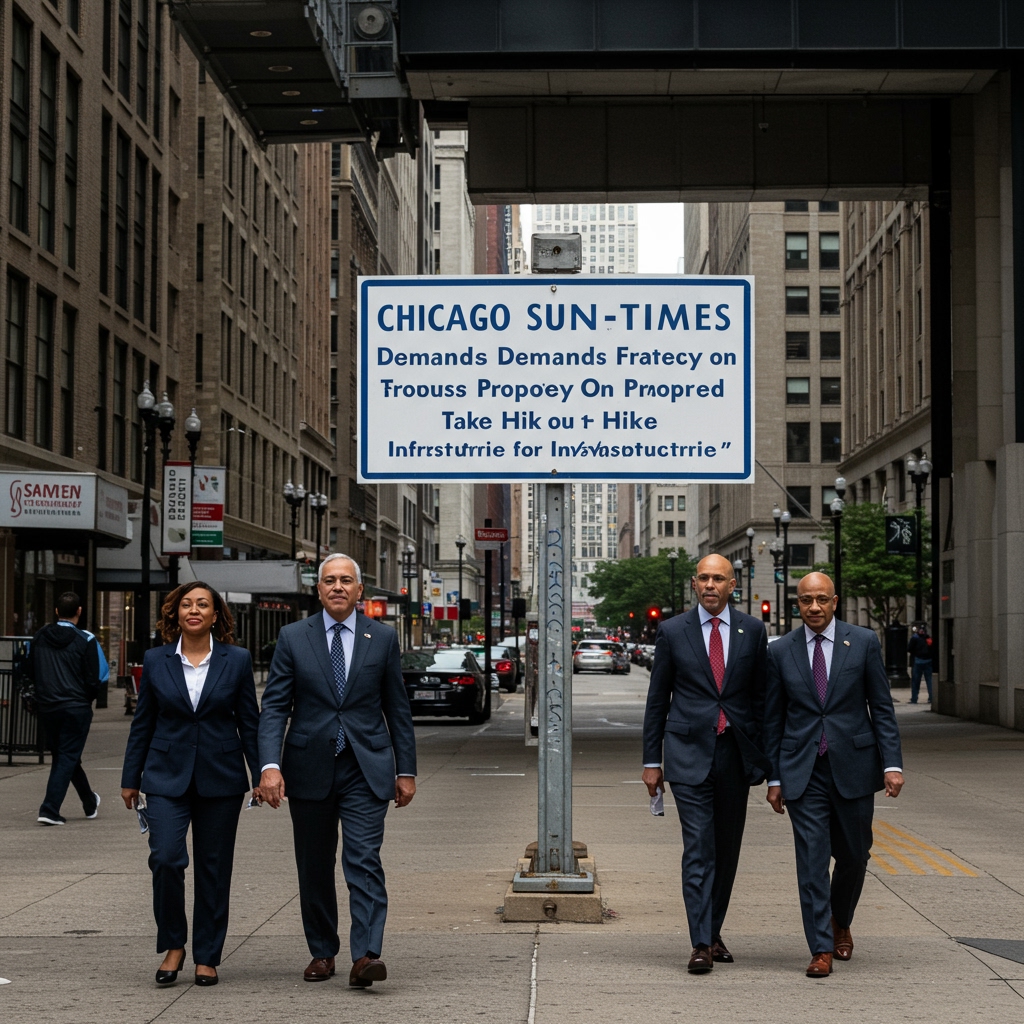Chicago is facing a fiscal precipice, with a projected $1.15 billion budget deficit for the upcoming fiscal year that threatens essential city services and long-term stability. In response, Mayor Brandon Johnson convened the Chicago Financial Future Task Force, a group of 24 civic leaders, business representatives, and labor advocates, tasked with charting a course through these turbulent financial waters. Their recently released interim report offers a sobering look at the city’s financial health and presents a broad menu of potential solutions, ranging from revenue enhancements to cost-saving measures.
The Deepening Fiscal Chasm
The core of Chicago’s financial predicament lies in a persistent structural deficit, exacerbated by escalating pension obligations and the winding down of federal pandemic relief funds. For years, the city has grappled with the reality of expenditures outpacing revenues, a situation made more acute as temporary federal aid, crucial during the pandemic, sunsets. The Corporate Fund, which covers day-to-day operating costs, is particularly strained, with personnel costs and pension contributions consuming a significant portion of its budget. This financial imbalance is not a sudden crisis but a culmination of long-term fiscal choices and economic shifts.
A Comprehensive Menu of Solutions
The task force’s interim report outlines 89 preliminary options with a potential to generate between $1 billion and $2.1 billion, aiming to bridge the projected shortfall. These proposals are broadly divided into revenue-generating strategies and cost-saving initiatives.
On the revenue side, the report suggests several paths, including automatic annual property tax adjustments tied to inflation, a measure that, while potentially generating $56 million in 2026, faces significant political opposition, including from Mayor Johnson himself. Other revenue-focused recommendations include re-instituting a corporate head tax, increasing garbage collection fees, imposing a tax on online gambling, and advocating for a larger share of state taxes. Many of these proposals, such as extending the sales tax to services or increasing shared state taxes, would require approval from the state legislature, adding another layer of complexity.
Cost-saving measures also feature prominently. The task force recommends maintaining the current hiring freeze through 2026, exploring furlough days for employees, and re-examining healthcare benefit designs. Some proposals, like reducing overtime for city employees or making changes to benefits for non-union staff, offer immediate savings. However, many of the more impactful cost-cutting measures, particularly those affecting unionized city workers, would necessitate delicate negotiations with powerful labor organizations.
Navigating the ‘Good, Bad, and Pointless’
The task force’s report reflects the inherent difficulties in addressing Chicago’s fiscal challenges. The ‘good’ lies in the extensive, collaborative effort to identify potential solutions, offering a data-driven approach to complex problems. The ‘bad’ encompasses the sheer scale of the deficit and the politically contentious nature of many of the proposed remedies, particularly tax increases and labor concessions. Mayor Johnson has publicly stated his belief that Chicago has a “revenue problem, not a spending problem,” signaling a potential disconnect with some of the cost-saving recommendations.
The ‘pointless,’ in an editorial sense, could be attributed to recommendations that, while technically viable, are unlikely to gain traction due to political realities or their limited fiscal impact relative to the enormous deficit. For instance, proposals requiring state legislative approval might languish, and deep cuts to city services or employee benefits could face fierce public and union backlash, rendering them politically unfeasible.
The report itself acknowledges the challenges, with some recommendations accompanied by dissents, highlighting the difficulty in achieving consensus even within the task force. The inclusion of potential savings from increased use of police drones or diverting non-emergency calls to telehealth offers innovative approaches, but their financial impact is relatively modest compared to the overall deficit.
The Road Ahead
The Chicago Financial Future Task Force has laid bare the stark realities of the city’s budget and presented a critical, albeit challenging, set of options. The interim report serves as a crucial starting point, but the real work now falls to Mayor Johnson and the City Council. They must sift through this extensive list, engaging in difficult conversations, and making tough decisions that will shape the city’s financial trajectory for years to come. The coming months will reveal which of these proposals have the political will to be implemented and which will remain as mere suggestions in a comprehensive, but perhaps incomplete, effort to secure Chicago’s fiscal future. This news signifies a critical juncture for the city’s governance and its residents, demanding transparency and courageous leadership.















